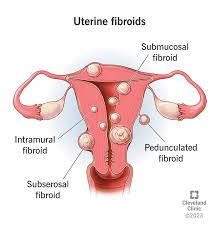In a groundbreaking study published in JAMA Network Open, researchers from Kaiser Permanente in Oakland, California, have uncovered a significant association between blood pressure control and the prevention of uterine fibroids in middle-aged women. Led by Susannah Mitro, a research scientist, the study tracked thousands of women over a period of up to 17 years, shedding light on potential strategies for reducing the prevalence of these painful growths.
Uterine fibroids, benign tumors that develop in the uterus, affect a substantial portion of women, with up to 80% experiencing them by the age of 50. Despite their common occurrence and the associated symptoms of pain and bleeding, effective prevention methods have remained elusive. However, the findings of this latest research offer new hope for women seeking to avoid the burden of fibroid-related complications.
Analyzing data spanning from 1996 to 2013, the research team followed 2,570 women enrolled in the Study of Women’s Health Across the Nation, all of whom had no prior history of fibroids upon enrollment. Over the ensuing years, approximately 20% of these women received a diagnosis of uterine fibroids, providing a comprehensive dataset for investigating potential risk factors.
One of the most striking findings of the study was the significant impact of blood pressure management on fibroid development. Women who effectively controlled their high blood pressure with medication experienced a remarkable 37% reduction in the likelihood of developing uterine fibroids. Conversely, individuals with new-onset hypertension faced a concerning 45% increased risk of fibroid diagnosis, underscoring the importance of proactive management of blood pressure.
The researchers delved deeper into the relationship between blood pressure and fibroid risk, uncovering compelling correlations. Among those with untreated high blood pressure, the risk of fibroids was heightened by 19%, whereas individuals undergoing treatment for hypertension enjoyed a 20% lower risk.












